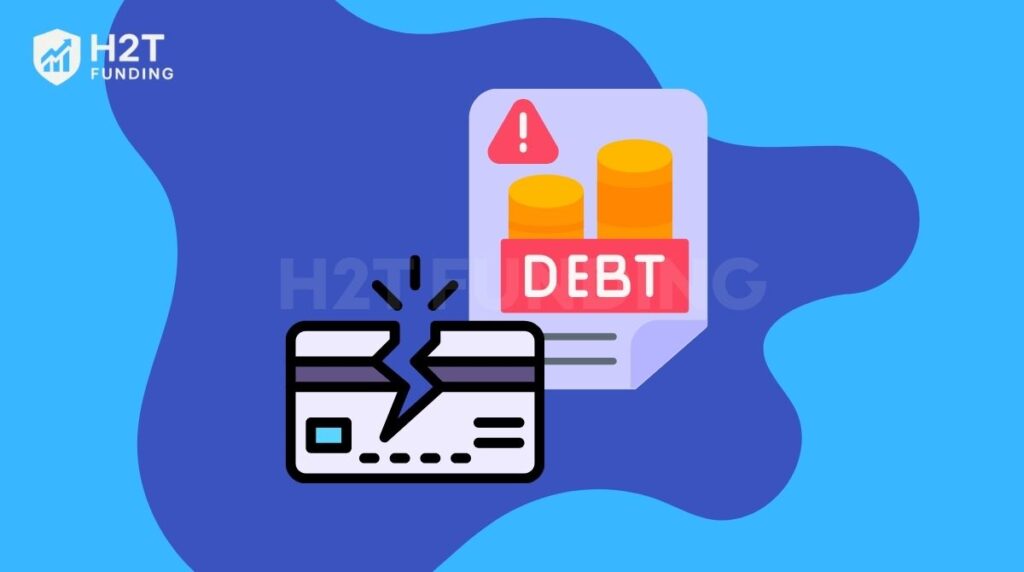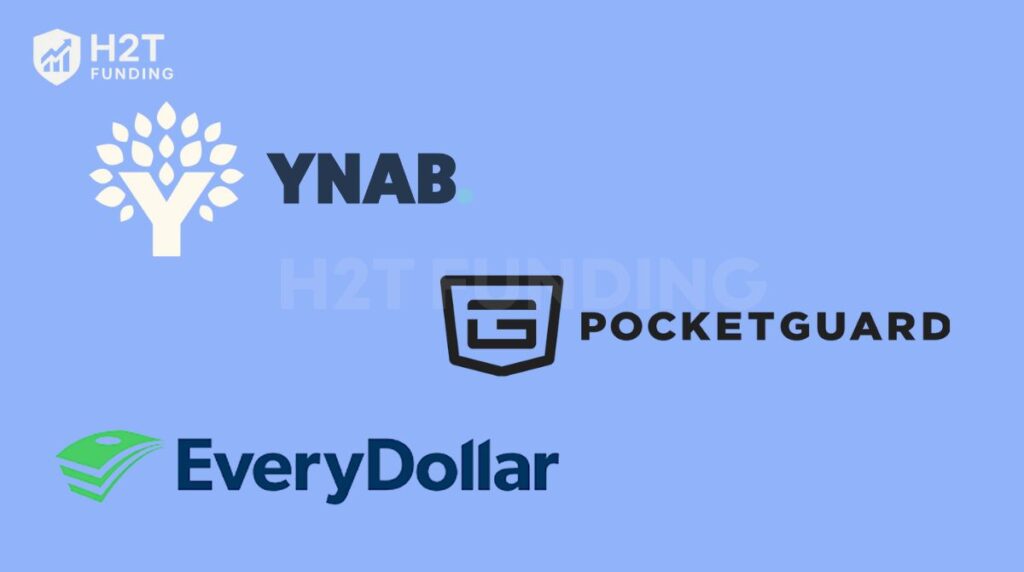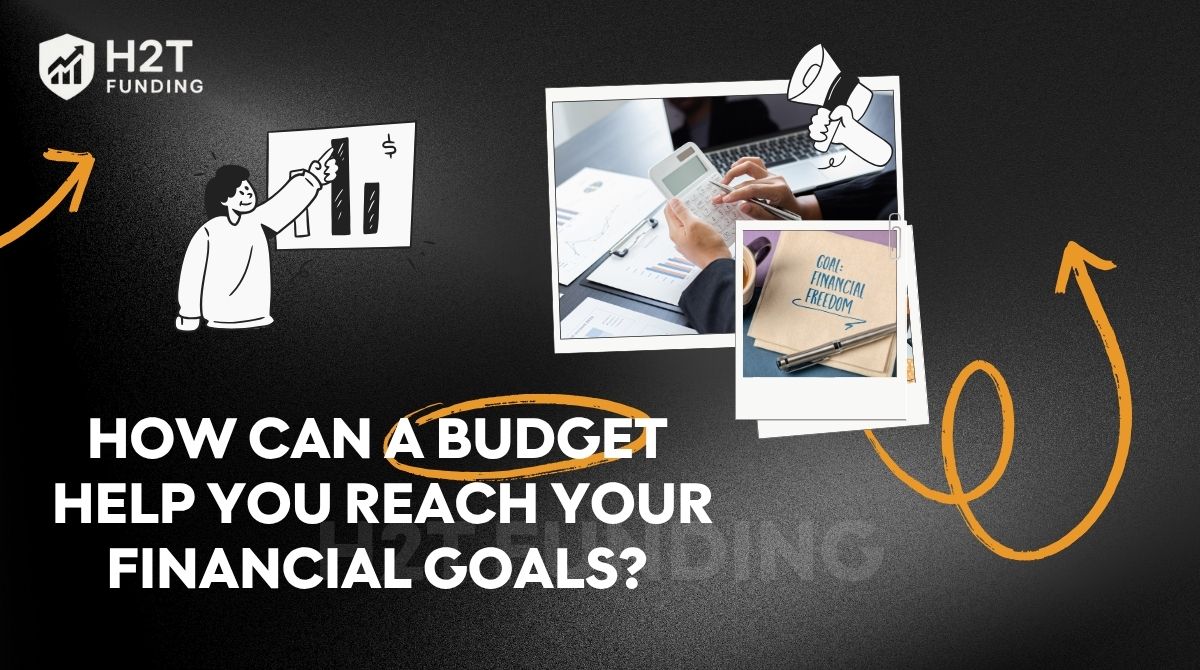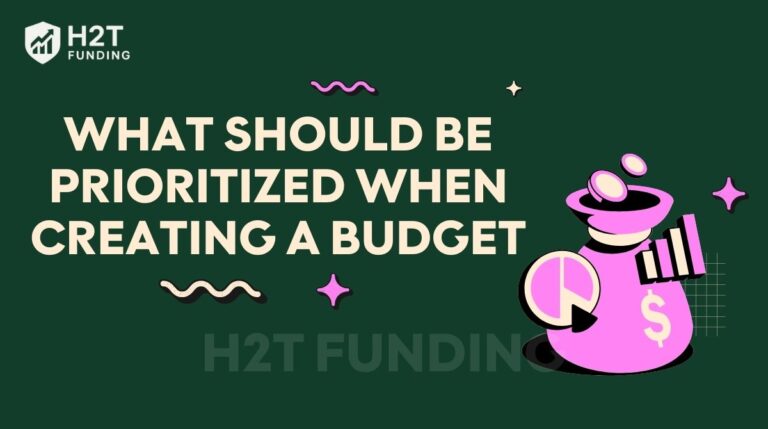That feeling of working hard, only to see your money vanish, is genuinely frustrating. You start to wonder, how can a budget help you reach your financial goals when they feel light-years away? Many people mistake a budget for a restrictive cage, but it’s more like a roadmap.
It doesn’t tell you where you can’t go. It shows you the smartest path to get where you want to be, whether that’s a dream trip or a secure retirement fund. By allocating every dollar with purpose, a structured budget places control firmly in your hands, helping you bridge the gap between intent and outcome.
In this article, I’ll examine the precise mechanisms through which budgeting empowers your financial journey. Step by step, I’ll show you exactly how a budget functions to align daily choices with your long-term aspirations and how you can apply it effectively.
Key takeaways
- A budget is a written plan showing how you will use your money, including income, expenses, savings, and goals.
- Tracking fixed expenses and variable expenses helps distinguish between needs and wants and prevents hidden leaks.
- Allocating a surplus for discretionary spending allows enjoyment without guilt while maintaining financial discipline.
- Regular contributions to an emergency fund protect against unexpected events and provide peace of mind.
- Sharing budgeting plans improves financial communication and teamwork in relationships.
- Prioritizing financial aid, savings, and investments creates a structured path, showing how a budget can help you reach your financial goals.
1. What is a budget, and why is it crucial for success?
A budget is a written plan that shows exactly how you’ll use your money. It maps out your income, expenses, savings, and goals, clearly and intentionally.
Why is having a budget important to your financial well-being? Because without one, you’re likely to drift financially, reacting instead of making informed decisions. For me, budgeting was a turning point. I used to feel lost at the end of every month, unsure where my paycheck had gone. I took charge after I began budgeting and started to notice the trends.

Knowing the facts isn’t enough; you need to be able to make better decisions as well. A clear budget helps you stay focused, spend with intention, and stop reacting blindly to every financial curveball.
Over time, my budget became a mirror. It showed me what I valued, what I wasted money on, and what needed to change. That self-awareness was key to building my first high-yield savings account and paying off credit card debt faster than I thought possible.
In short, having a budget isn’t just smart; it’s essential to your long-term financial well-being.
Read more related articles:
2. How can a budget help you reach your financial goals? 7 powerful ways
To answer the core question: how can a budget help you reach your financial goals? Let’s look at seven powerful ways it can transform your entire financial game. These are not theories, but practical, proven strategies that bring real, measurable results.
2.1. It increases financial awareness: You know exactly where your money goes
Budgeting shines a light on your spending. By tracking every expense, you quickly see where your money actually goes, not just where you think it goes. Small, frequent purchases often add up to surprising totals.
When I started tracking my expenses, I found I was paying for two unused streaming services and a design app I forgot to cancel. It added up to nearly $147 a month.
Cutting them didn’t make me rich overnight, but it felt like finding cash in an old coat pocket, an unexpected boost that I immediately used to kickstart my emergency fund.
A clear budget reveals patterns and triggers better decisions. Knowing you’ll record each purchase makes you pause before spending. That awareness is the first step to controlling your money and reaching your goals with purpose.
2.2. It connects your daily spending to your long-term dreams
Every long-term financial goal, whether it’s buying a home, traveling the world, or retiring early, depends on the daily choices you make with your money. A budget creates a direct link between the present and the future.

Instead of viewing spending in isolation, budgeting shows how each decision impacts your ability to save and invest. For example, choosing to cook at home more often could free up hundreds of dollars each month. That money could be redirected into a savings plan or investment fund to cover essential needs.
This deliberate alignment makes broad goals into specific steps that can be taken. With a budget, you’re not just spending; you’re funding your future. It reinforces the idea that small, consistent adjustments in daily habits can accelerate progress toward even the most ambitious goals.
By tracking and categorizing expenses, a budget acts as a feedback loop: helping you course-correct in real time to stay focused on what matters most.
2.3. It helps you spend money wisely and without guilt
Many people think budgeting means tightening their belt and saying no to all fun. In reality, a good budget does the opposite: it proactively creates a dedicated fun fund for you.
After covering rent, bills, and savings, the remaining money can go toward a nice meal, a good book, or coffee with friends, fulfilling small wants completely guilt-free. It puts a full stop to that nagging feeling of Should I really be spending this?. You’re not just enjoying life; you’re sticking to the plan.
Budgeting transforms spending from something impulsive into something intentional. And that shift leads to greater satisfaction and long-term security.
2.4. It acts as an early warning system to avoid debt
Budgeting helps you spot financial issues before they spiral out of control. When you track income and spending regularly, you can quickly see when expenses are creeping beyond your means.

I remember a colleague confiding in me that she’d racked up over $1,000 on her credit card in just two months. It wasn’t from one big splurge, but from the slow, silent creep of daily coffees, lunches out with the team, and a few on-sale online purchases she barely remembered making.
A budget would have been her early warning system, flashing a signal that said, Hey, spending is outpacing income, creating a potential deficit, long before the shocking credit card statement arrived.
Maybe you need: Free debt payoff tracker printable to stay on budget
2.5. It helps you feel more in control of your money, which can ease financial stress
Financial uncertainty, not knowing if you’ll have enough to make it to the end of the month, is a huge, silent source of stress. Managing money without a budget is like walking through a dark room; you fumble around, constantly afraid you’re going to trip over something.
A budget is a light switch. Suddenly, everything is clear: here’s your income, there are the bills, and this is what’s left. This clarity brings a surprising sense of peace. You’re no longer reacting to financial problems; you’re anticipating them and ready to act.
Over time, budgeting becomes more than just a money tool; it becomes a mindset. One that makes you feel clear, confident, and at peace.
2.6. It builds your financial safety net for emergencies
Life is full of unexpected bumps: the car breaks down, an unforeseen medical bill arrives, or the refrigerator suddenly dies. A budget helps you prepare by using an emergency fund calculator. By allocating a portion of your income each month to a dedicated fund, you gradually build a buffer that protects you when life doesn’t go as planned.
This safety net does more than protect your money; it gives you peace of mind. Knowing you have backup helps you handle crises calmly without panicking or reaching for a credit card. In essence, budgeting turns uncertainty into readiness and ensures that your goals don’t have to stop when surprises happen.
2.7. It creates financial transparency and teamwork in relationships
Money is one of the most common sources of tension in relationships, especially when goals, habits, or expectations aren’t aligned. A shared budget makes things more organized, clear, and easy to talk about.
By discussing income, expenses, and priorities together, couples and families can build trust and make joint decisions with confidence. A transparent budget lays everything out on the table, preventing misunderstandings and encouraging accountability.
It also helps the team make sure that short-term spending is in line with long-term goals. Whether you’re saving for a house, a vacation, or managing household bills, a joint budget ensures everyone is moving in the same direction.
Ultimately, budgeting isn’t just a financial tool; it’s a relationship tool. It creates a sense of partnership, shared responsibility, and unity in the journey toward common goals.
Discover more articles:
3. How to create a simple budget that actually works (in 5 steps)
Understanding why budgeting matters is only the first step. The next challenge is putting it into practice in a way that fits your life without overcomplicating things. Follow these four steps to take control of your finances today and start building a budget that actually works for you:
- Step 1: Define your financial goals
- Step 2: Track your income and expenses for one month
- Step 3: Organize your spending and build your budget plan
- Step 4: Track your progress regularly
- Step 5: Automate and simplify wherever possible
Take action now by reviewing your current finances and deciding which step you can start with today.
3.1. Step 1: Define your financial goals clearly
Before tracking numbers, get clear about what you want your budget to support. Using the SMART goals framework includes Specific, Measurable, Achievable, Relevant, and Time-bound.

For example: Save $5,000 for an emergency fund in 12 months. Clear goals act as your direction; they help you make better spending decisions and stay consistent when motivation drops.
3.2. Step 2: Track your income and expenses for one month
Start by recording all sources of income and every single expense for 30 days, no exceptions. This includes fixed expenses like rent, variable expenses like groceries, and even small, frequent purchases such as coffee or streaming services.
You can choose the way that works best for you:
- A simple notebook
- An Excel or Google Sheets spreadsheet
- A free budgeting app (like YNAB or PocketGuard)
The goal at this stage isn’t to judge or restrict, just to observe. You’re collecting data to understand where your money really goes. This financial self-awareness forms the foundation of an effective, realistic budget.
3.3. Step 3: Organize your spending and build your budget plan
After keeping tabs on your earnings and outlays, it’s time to arrange them and establish your priorities. Begin by grouping your spending into major categories such as:
- Housing
- Food and groceries
- Transportation
- Utilities
- Debt payments
- Entertainment
- Savings and investments
Then, decide how to structure your plan. You can use the 50/30/20 rule for simplicity or go with zero-based budgeting if you prefer assigning every dollar a purpose.
Make sure your savings categories connect directly to the goals you defined in Step 1, whether it’s paying off a credit card or preparing for a trip.
3.4. Step 4: Track your progress regularly (weekly or monthly)
A budget isn’t a one-time document; it’s a living system that should evolve with your life. Goals change, unanticipated expenses occur, and income fluctuates. That’s why regular reviews are essential.
At the end of each month (or at least quarterly), take time to:
- Compare your actual spending to your planned categories.
- Determine where you spent too much or kept on course.
- Adapt distributions to any new objectives or changes in life.
This review process keeps your budget realistic and responsive. It helps you stay intentional, make improvements, and avoid drifting back into old habits.
Consistency is key. Even a short 15-minute check-in can keep your finances aligned and your goals in sight.
3.5. Step 5: Automate and simplify wherever possible
Automation reduces manual work and helps you stay consistent without relying on willpower. Set up automatic transfers for savings and debt payments, so your goals are funded before you even think about spending.
Tools like YNAB, Pocket Guard, or EveryDollar can also simplify tracking by categorizing transactions automatically and showing your overall trends.

The fewer tasks you handle manually, the easier it becomes to stick to your budget long term.
4. Real-life example: From budget plan to goal achievement
To make this practical, let me share a personal example from when I first committed to budgeting. At the time, my money felt like it kept slipping away without explanation. I wasn’t struggling, but I also couldn’t clearly track where my income went each month.
The turning point was setting a goal to build a $3,000 high-yield savings account, something I had postponed for years. It always felt inconvenient, but I knew I needed a real plan. That single goal gave me a reason to take budgeting seriously.
I spent a month tracking every expense, from fixed bills to spontaneous purchases. Seeing all the data at once was eye-opening. Small habits, especially takeout, coffee, and forgotten subscriptions, were quietly adding up.
Here’s a simplified before-and-after snapshot of my budget:
| Category | Before Budgeting | After Budgeting |
|---|---|---|
| Rent + utilities | $1,150 | $1,150 |
| Groceries | $380 | $350 |
| Eating out | $260 | $120 |
| Transportation | $140 | $140 |
| Subscriptions | $75 | $25 |
| Shopping & impulse buys | $300 | $120 |
| High-yield savings account | $0 | $400 |
Once the numbers were clear, the next steps became simple. “I didn’t need major changes, just intentional adjustments. Reducing eating out, pausing unused subscriptions, and limiting impulse shopping freed up more than $400 a month.
I redirected that amount straight into a high-yield savings account and automated the transfer. Automation kept me consistent because the money moved before I could spend it. Within months, I watched the high-yield savings account grow faster than I expected.
That experience reshaped how I handle money today. A budget isn’t about restriction; it’s about direction. When you give every dollar a job and see steady progress, sticking to your plan becomes a habit you naturally defend.
5. Common mistakes that delay your financial goals
Many people set clear financial goals but still struggle to make progress, and I’ve been there myself. In my case, it wasn’t the big decisions that held me back; it was the small habits I didn’t notice. Once I learned to spot those mistakes early, staying on track became much easier.
- Setting unrealistic goals: Big goals sound inspiring, but they can lead to stress when they don’t match your current income or lifestyle. Smaller, achievable targets help you stay motivated and consistent.
- Not adjusting your goals when life changes: Your finances change with your job, expenses, and personal situations. If you don’t update your goals, you may feel overwhelmed or fall behind. Regular check-ins help you stay aligned with reality.
- Ignoring small wins: Focusing only on long-term goals makes progress feel slow. Celebrating small milestones, like saving your first $50 or reducing one monthly bill, keeps your motivation strong.
- Emotional spending and hidden leaks: Impulse purchases and “small treats” can quietly drain your budget. Tracking your spending helps you see where money is slipping away and gives you control over your habits.
- Overlooking tax impact: Taxes affect how much money you can actually save or invest. When you ignore them, you risk unexpected costs or missed benefits. Basic tax planning helps protect your progress.
These mistakes may seem minor, but they can slow your financial journey more than you expect. By setting realistic goals, staying flexible, and controlling your spending habits, you build a plan that works in real life. Staying aware is the first step toward achieving your financial goals.
6. FAQs about budgeting and financial goals
A budget forces you to prioritize your needs and goals. By assigning every dollar a purpose, it ensures that your money goes toward what truly matters, helping you spend intentionally instead of impulsively.
Many life goals, like career shifts, travel, education, or starting a business, require financial stability. Budgeting helps free up the necessary resources, so you can pursue what’s meaningful without compromising your financial health.
Yes. A budget is the foundation of all successful money management. It allows you to plan, save, invest, and avoid debt. Without it, even high income can be mismanaged or wasted.
It gives you structure, insight, and control. You gather data, plan, and track performance. Instead of reacting to money problems, you proactively manage your financial life like a system, efficiently and strategically.
Budgeting plays a key role in achieving financial goals by helping you plan, prioritize, and control your spending. It ensures your income is used intentionally, toward savings, debt repayment, or investments. With a clear budget, you stay focused and avoid impulsive financial decisions.
Budgeting is essential because it gives you a clear roadmap for your money. Without a budget, it’s easy to overspend or miss opportunities to save and invest. By planning your income and expenses, you stay on track with your financial goals and avoid unexpected setbacks.
A budget identifies where your money goes and highlights areas where you can cut back. By setting aside a fixed amount for savings each month, you build a habit that grows over time. Even small, consistent contributions add up, helping you reach short- and long-term goals faster.
Yes. Budgeting allows you to allocate funds specifically for debt repayment, prioritize high-interest debts, and avoid taking on new unnecessary expenses. With a structured plan, you gradually reduce debt while maintaining your other financial responsibilities.
Staying motivated comes from tracking progress and celebrating milestones. Seeing your savings grow, debt decrease, or bills get paid on time creates a sense of achievement. Breaking your budget into manageable steps and rewarding yourself for sticking to it keeps you engaged and consistent.
There’s no one-size-fits-all method, but popular options like zero-based budgeting, the 50/30/20 rule, or envelope budgeting work well for most people. Choose a method that fits your income and goals, then consistently track spending and adjust as needed.
A budget gives you control and clarity. It prevents overspending, helps you plan for big expenses, and ensures money is used purposefully. Instead of reacting to financial problems, you proactively manage your money, making smarter decisions and reducing stress.
7. Conclusion
Ultimately, a budget isn’t a rigid set of rules; it’s the tool that lets you take back control. It transforms vague financial anxiety into a clear plan of action. So, how can a budget help you reach your financial goals?
It does so by turning your small, daily choices into steady, meaningful progress toward the future you want. Don’t wait for the ‘perfect’ plan. Start today by simply tracking this week’s spending. That small action is the most powerful first step you can take.
Want more guidance? Explore other expert insights in our Budgeting Strategies series from H2T Funding, designed to help you build smarter, stronger financial habits from the ground up.





